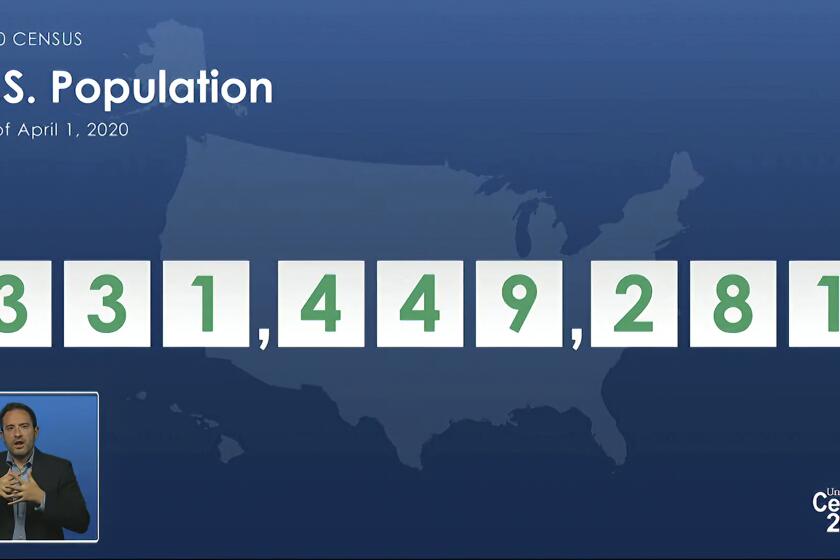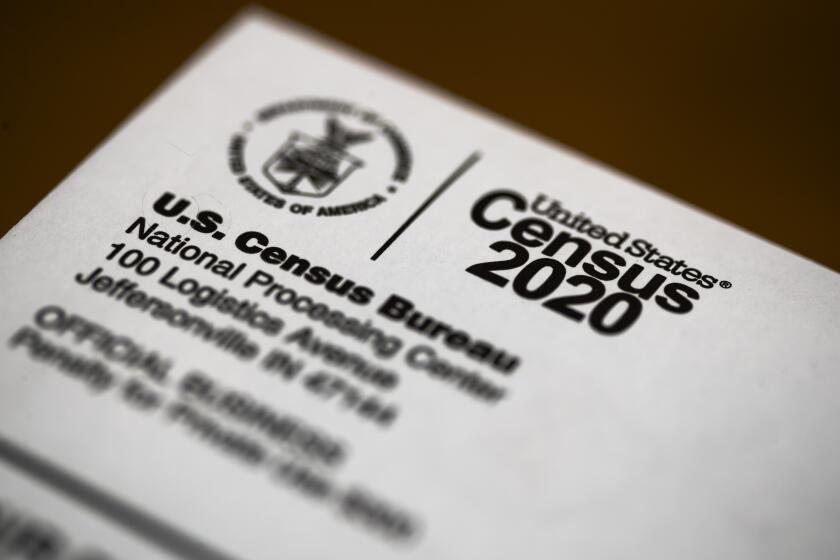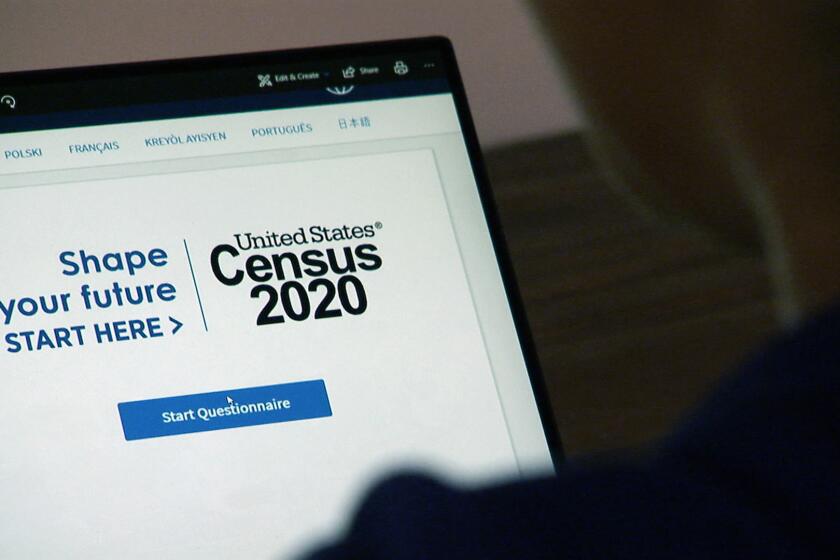2020 census: Fear, lack of funding might have hurt results in Sun Belt

AUSTIN, Texas — According to the new census, the booming Sun Belt isn’t booming quite like the experts thought.
Population counts released Monday came as a shock to many demographers and politicians who expected to see growth that could add numerous congressional seats to a region that’s apparently been gaining people rapidly all decade. Instead, the census found more modest growth that added only three seats total in Florida and Texas. Arizona, the second-fastest growing state in 2010, didn’t add a seat at all.
The questions that advocacy groups and officials are now asking are whether all the new subdivisions and shopping centers are a mirage, whether those states erred in not investing more in encouraging residents to fill out census forms and whether Latinos, in particular, were reluctant to trust the Trump administration with their information.
Many demographers caution that it’s too early to conclude that the nation’s once-a-decade count missed any specific population groups. That won’t be known until more local data are released later this year and the Census Bureau completes an independent survey measuring the accuracy of the 2020 head count.
But one thing is indisputable: The three Sun Belt states came in lower in the official count than in recent estimates. The results mean that Texas picked up only two additional congressional seats instead of three, Florida added only one instead of two and Arizona failed to gain the seat it was expecting.
All three states are led by Republican governors who devoted less resources than other states to encouraging participation in the 2020 census. And in all three states, Latinos have accounted for about half of the population growth over the decade, according to American Community Survey data.
The first batch of census data shows sluggish population growth, holds good news for the GOP and raises questions about a possible Latino undercount.
In Arizona, activists blamed Gov. Doug Ducey for supporting the Trump administration’s failed effort to add a citizenship question to the 2020 census questionnaire. Those efforts intimidated Latinos and kept them from fully participating in the census, they said.
“What we saw from the government, Ducey and the Trump administration was intimidation from Day 1 on the census,” said Eduardo Sainz, national field director for Mi Familia Vota, a political advocacy group. “Because of this narrative of fear, and this narrative of not funding, we lost that seat.”
The Ducey administration released a statement from the state demographer saying that more data were needed to determine why the count fell short of estimates of Arizona’s growth.
During outreach efforts to get people to fill out their census forms, Latino residents would ask Adonias Arevalo, state director for Poder Latinx in Phoenix, about Trump’s push on a citizenship question. ”Despite the fact that we said a citizenship question will not be present, folks didn’t trust the Trump administration,” Arevalo said.
The U.S. Census Bureau released apportionment data, but the pandemic-induced lag has already caused ripple effects on redistricting and 2022 races.
He said Arizona’s undercount was partly the legacy of Republican leaders, including former Maricopa County Sheriff Joe Arpaio, and anti-immigration laws.
“For years, people have distrusted the system,” Arevalo said. “People fear to participate in these processes due to years of criminalization.”
Arizona, Florida and Texas lagged behind other states in efforts to form statewide committees aimed at driving census participation. Arizona named members to its committee only in August 2019, and Florida set one up in January 2020, just weeks before the national head count began in a rural Alaska village. Texas never even set up a statewide committee, which some census activists attributed to state lawmakers not wanting to take a stand on the citizenship question by promoting the census.
Democrats slammed the GOP for those moves.
Biden says he’ll pick the president of the American Statistical Assn/ to lead the U.S. Census Bureau as it works toward releasing data from the 2020 census that will be used for redrawing congressional and legislative districts.
“From the very beginning, we knew our state was particularly at risk of undercounting our neighbors,” state Rep. Chris Turner, the Texas House’s Democratic Caucus Chair, said in a statement. “A concerted, organized outreach effort is essential to ensuring maximum participation in the census and getting the most accurate count,” he added in an interview.
But state demographer Lloyd Potter contended that there’s little evidence massive state spending increases census accuracy. Instead, he said in an interview, Texas has a lot of the types of people who routinely get undercounted: rural citizens, African Americans and Latinos.
“Those are factors for all states and may have been more of a factor for Texas,” Potter said. “We have a lot of rural areas in Texas; we have a very significant and growing Latino population.”
Texas Republicans released a statement after the census count that said: “Representation in Texas must be based upon citizenship, and strategically we can ascertain why the left wants to flood Texas with thousands of illegals.”
Start your day right
Sign up for Essential California for the L.A. Times biggest news, features and recommendations in your inbox six days a week.
You may occasionally receive promotional content from the Los Angeles Times.
In Florida, a spokeswoman for Gov. Ron DeSantis didn’t respond to an email inquiry.
Paul Mitchell, a redistricting expert in California, a state that spent $187 million on census outreach, said there was a clear pattern in the numbers. States that funded major participation campaigns did well, while Republican-led states, which viewed such efforts as tacit criticism of then-President Trump, did not, he said.
“Texas, Florida, Arizona — they didn’t do big outreach efforts to improve the count,” Mitchell said. “In Texas, particularly, it was anathema to say anything in the Legislature that could be seen as critical of Trump.”
Mitchell said the dynamic with Latinos seems clear given the populations of the underperforming states. He noted that some states that did comparatively better, like California, promised to protect their immigrants, whereas low-spending GOP ones did not.
The U.S. Census Bureau says it knows of no attempts by census takers to systemically falsify information during the 2020 head count of every U.S. resident.
“It does just kind of stare you in the face,” Mitchell said of the pattern.
The population count from the 2020 census for Arizona was 3.3% short of previous estimates. Florida and Texas were short by 0.7% and 0.5%, respectively.
On the flipside, the population counts in two states that had been expected to lose seats, Alabama and Rhode Island, exceeded their estimates by 2% or more.
During this census cycle, Rhode Island for the first time devoted $1.5 million in public and private money on census outreach efforts. That, along with the fact that the state hosted the only test run of the census in 2018, helped keep the head count in the public eye, said John Marion, executive director of Common Cause Rhode Island.
A statistical tweak to 2020 Census data to protect respondents raises troubling questions about data accuracy and its effect on redistricting.
“There was this constant drumbeat that we could lose our second seat,” Marion said.
If New York had counted 89 more residents, and all other states stayed the same, the state would have kept a seat that it now appears set to lose. New York Gov. Andrew Cuomo said Tuesday that the state was exploring its legal options.
“When you’re talking about 89, that could be a minor mistake in counting,” Cuomo said.
The narrow margins by which New York narrowly lost a seat, Alabama and Rhode Island hung onto theirs and the three Sun Belt states underperformed have aroused suspicions that something “doesn’t seem quite right,” said Arturo Vargas, CEO of NALEO Educational Fund, a Latino advocacy group.
“I smell smoke,” Vargas said. “We will have to wait a few months to see what kind of fire there is.”
More to Read
Sign up for Essential California
The most important California stories and recommendations in your inbox every morning.
You may occasionally receive promotional content from the Los Angeles Times.















